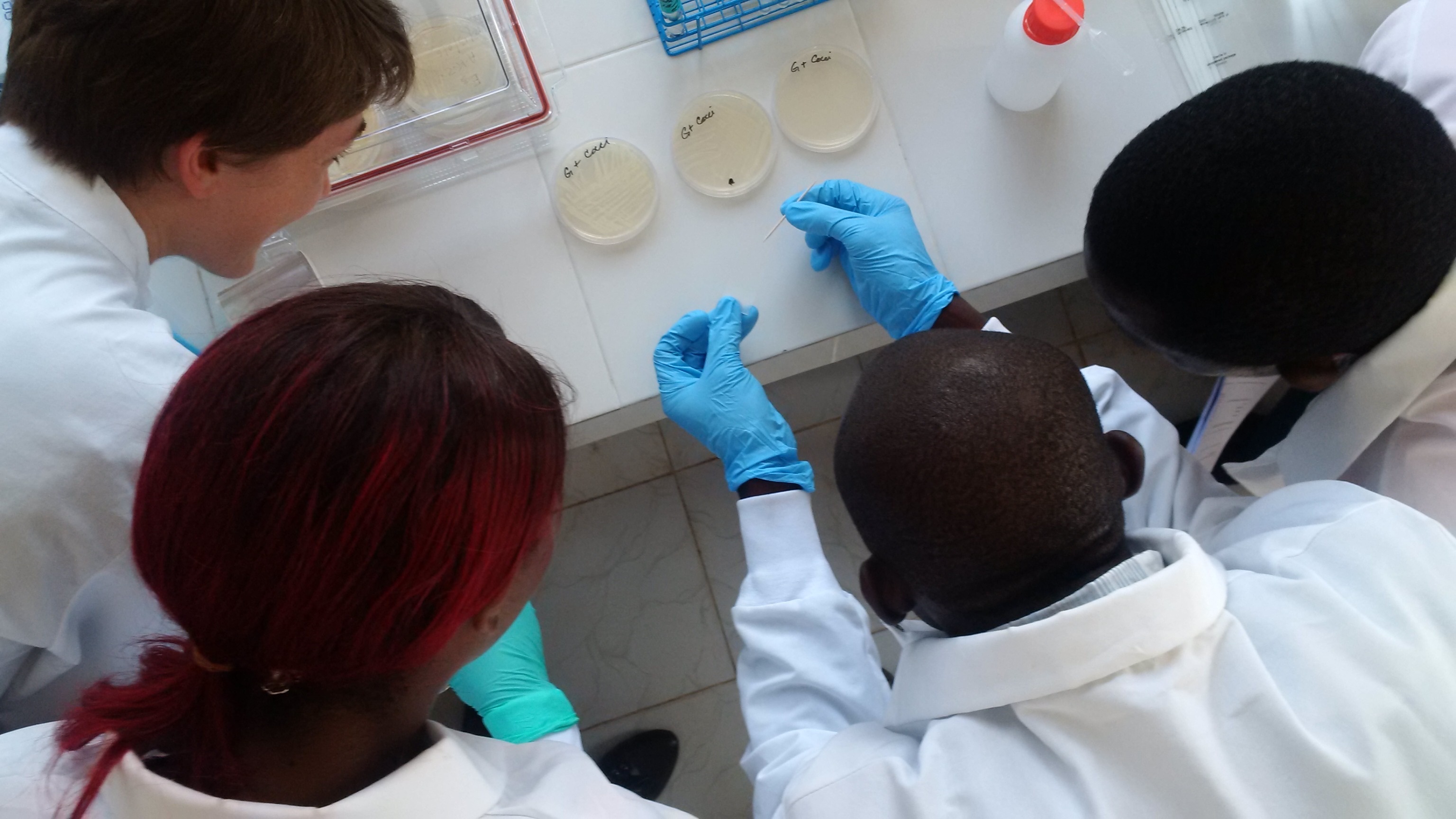Infectious diseases are a constant threat to military personnel and civilians. In regions like West Africa, where outbreaks can spread widely and rapidly, clinical and research capabilities are critical to detect and respond to current and emergent pathogens.
In light of lessons learned from the West Africa Ebola outbreak, in 2015 the U.S. Department of Defense supported a strategic Army-Navy initiative called the Joint West Africa Research Group (JWARG).
Since then, JWARG has worked to leverage existing research platforms and partnerships in Nigeria, Ghana and Liberia to improve biopreparedness in West Africa, focusing on infectious disease research, countermeasure product development and biosurveillance.
Infectious Diseases Research
JWARG activities center on infectious disease research relevant to the West Africa region. EIDB leads several studies in the region on Lassa fever and severe infectious diseases, and has conducted education and training for scientific and medical personnel including Good Clinical and Laboratory Practices, and malaria and mpox diagnostics.
JWARG aims to strengthen research capabilities in the region to learn more about emerging pathogens and contribute to development of improved diagnostics, therapeutics and vaccines, which in turn support U.S. DoD goals in pursuit of global health security, Soldier health and force protection.
Building Human Research Capacity

JWARG provides education and training for scientific and medical personnel in West Africa to support program activities in the region. Training courses conducted to date include:
- Good Clinical and Laboratory Practices (GCLP)
- Clinical Chemistry and Hematology
- Introductory and Advanced Genomics
- Malaria Microscopy
- Clinical Management of Tropical and Emerging Infectious Diseases
Biosurveillance
Early identification of new infectious disease threats is critical to planning response, limiting disease impact and informing countermeasure development. JWARG is collaborating with the African Centre of Excellence for the Genomics of Infectious Disease and the Sabeti lab at the Broad Institute of Harvard and MIT to roll out advanced molecular diagnostics and sequencing on the continent, allowing more rapid dissemination of data on infectious disease threats.
Work with the U.S. Army Medical Research Institute of Infectious Disease is further advancing molecular and serologic diagnostic capability. JWARG partnerships with the American Society for Microbiology and the National Strategic Research Institute/University of Nebraska Medical Center are facilitating development of microbiology capability and enabling surveillance for bacterial pathogens and associated antimicrobial resistance. Interaction with U.S. Africa Command (AFRICOM) informs JWARG surveillance priorities.
